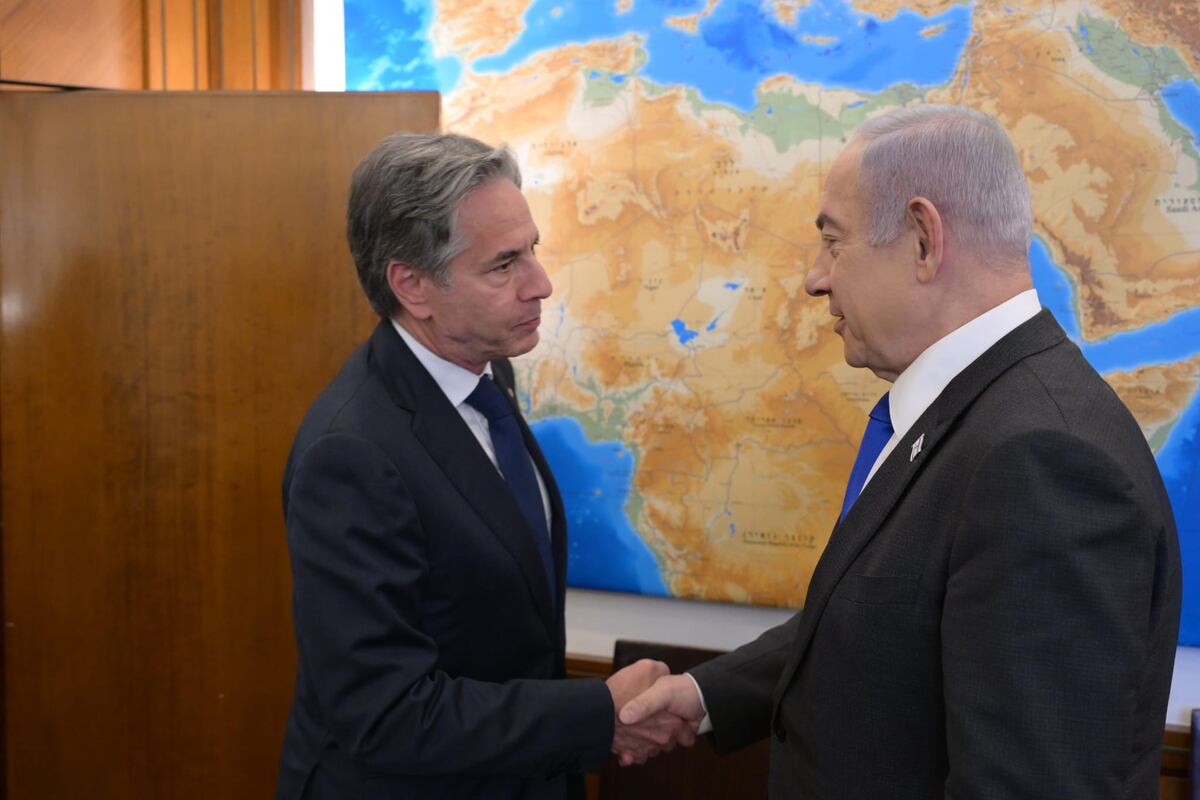US Secretary of State Antony Blinken has embarked on an urgent tour of the Middle East, visiting Egypt, Israel, Jordan, and Qatar. This is Blinken's eighth trip to the region since the Israeli-Hamas war erupted in October. The mission aims to promote the ceasefire proposal announced by President Joe Biden at the end of May, promising humanitarian aid and discussing future governance plans for Gaza. However, Blinken faces significant hurdles, including recent violent escalations and political changes within the Israeli government.
In Cairo, Blinken met with Egyptian President Abdel Fattah Al Sisi and intelligence chief Abbas Kamel, who oversees the Gaza dossier. Discussions focused on the recent truce proposal and management of the Rafah border crossing, a critical gateway for humanitarian aid into Gaza. The border has remained closed since Israel seized the Palestinian terminal in early May.
Following his engagements in Egypt, Blinken flew to Israel for discussions with Prime Minister Benjamin Netanyahu and planned meetings with other key political figures like opposition leader Benny Gantz. Gantz, who recently resigned from the war cabinet and government due to disputes with Netanyahu over the Gaza offensive's management, remains a pivotal figure in Israeli politics.
Blinken's visit comes under the shadow of recent events, notably the Israeli operation in Nuseirat, central Gaza, to rescue four hostages, which resulted in 274 Palestinian deaths and around 700 injuries. The US had provided intelligence for this operation. The incident, however, might complicate ceasefire negotiations given the substantial loss of civilian lives and the ongoing military actions by both sides.
The US and its regional partners are pushing for Hamas's approval of Biden's ceasefire plan. This plan demands an immediate and complete ceasefire, the release of hostages held by Hamas in exchange for Palestinian prisoners, and the withdrawal of Israeli forces from densely populated Gaza areas. Nonetheless, the persistent silence from Hamas and internal political strife in Israel make the plan’s success uncertain.
Besides aiming for a truce, Blinken’s regional tour also seeks to contain the conflict's spread. The resignation of Benny Gantz from Israel's national unity government further complicates US diplomatic efforts, as it increases Netanyahu's reliance on far-right parties opposed to any ceasefire agreement.
During talks, Blinken emphasized the urgent need for humanitarian aid. The US resumed humanitarian aid drops into Gaza, addressing the dire conditions faced by 2.4 million residents amid ongoing hostilities. Efforts to reopen the Rafah border crossing between Egypt and Gaza are vital, with diplomatic discussions trying to overcome safety concerns and logistical hurdles.
Blinken's tour will conclude in Qatar after attending a regional economic conference in Jordan, focusing on the humanitarian response in Gaza. Concurrently, the possibility of an agreement to release five American hostages held by Hamas, mediated by Qatar without Israel's direct involvement, underscores the multifaceted US approach towards ending the crisis.
- The Biden administration remains heavily invested in seeking a resolution to the ongoing Gaza conflict, balancing immediate humanitarian needs with long-term political stability in the region. Israel's refusal to halt attacks post-hostage release continues to be a significant point of contention.
- The role of key regional mediators like Egypt and Qatar is crucial as they have previously facilitated negotiations between Israel and Hamas. Their efforts are now supplemented by the US diplomatic push led by Blinken, aiming for a sustainable ceasefire and eventual peace.
- The internal political landscape within Israel presents additional barriers to achieving a ceasefire. Netanyahu’s government, heavily influenced by far-right groups, faces pressure against any concessions to Hamas, which further complicates the US-led peace efforts.
- Humanitarian conditions in Gaza are dire, with continual conflicts exacerbating the scarcity of basic supplies. The reopened Rafah crossing could significantly alleviate the humanitarian crisis, provided that safety guarantees and logistical issues are resolved.






